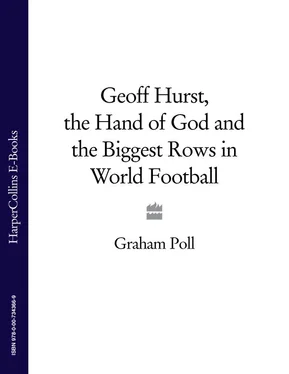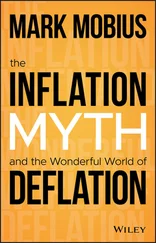HOME NATIONS:England, the only home nation to reach the finals, did so as winners of their qualifying group. In Germany they were unconvincing in wins against Paraguay and Trinidad and Tobago (the smallest country ever to have reached the finals). A draw against Sweden was sufficient for England to top their group again, however, and they were 1-0 winners in the round of 16 match against Ecuador. In their quarterfinal they were beaten on penalties by Portugal.
WHAT do the Laws of the Game say about Fourth Officials? Nothing at all. They are not mentioned in the 17 actual Laws. But there is a page devoted to them in the additional information section in the booklet of the Laws of the Game. It says, the Fourth Official ‘must indicate to the referee when the wrong player is cautioned because of mistaken identity or when a player is not sent off having been given a second caution, or when violent conduct occurs out of the view of the referee and assistant referees.’
Note that it does not say that the Fourth Official has to see the violent conduct with his own eyes. There is nothing in the letter of the Law which stipulates that the Fourth Official cannot consult a TV replay. In fact, there is nothing anywhere in the Laws, or in any of the additional information, which mentions TV replays at all, let alone specifically precludes their use.
Zinedine Zidane’s jibe about giving his shirt to Marco Materazzi started the verbal exchange which ended with the Italian flat on the floor, but the Frenchman gave me one of his shirts without a fight—although not without some shameless begging on my part. I tell the story in Seeing Red, so now let me just say that the shirt is on the wall of my study in my home, in Tring, in Hertfordshire (guarded by Toffee, our dog, in case you were wondering).
I am immensely proud to have that shirt because, regardless of how his career ended, ‘Zizou’ was a wonderful player. I am proud of the fact that I was considered good enough to referee several games in which he took part. I am very lucky that I was able to see his sublime skills at close hand.
It is said that great players have more time on the ball and in my experience that is certainly true. In Zidane’s case, the extra time came from his anticipation, his speed of thought and his great technical ability. Before a pass reached him, he had already looked and thought ahead. He knew what he would do when the ball got to him. And when it did reach him, there was no fumbling or dithering. His first touch was sufficient to control the ball or to move it on in the direction he wanted it to go.
All of that meant that, although the modern game is played at a frenetic pace, Zidane had an unhurried tranquillity. When he wasn't nutting people, of course.
Good referees also try to give themselves time. They try to anticipate where and when incidents will happen, and try to think in advance about giving themselves a good view of those incidents. Then, when something happens, they try to give themselves a moment to think before reacting.
The 2006 World Cup Final in Berlin was the one I might have refereed and then became the one I didn't want to watch.
I certainly didn't expect to referee it, or even allow myself to hope I would, but I now know that, if I had not made my infamous mistake with three yellow cards, there was a strong possibility that I might have been selected for the Final. Instead, I was sent home before the quarterfinals and was in such terrible, black despair that I did not think I would watch any of the remaining games. I didn't think I would be able to bear watching. But people—friends and family—said, ‘You were there. You were part of that tournament. You've got no reason not to see how it finishes.’
And the day I got back from Germany to the safe harbour of my home in Tring, the very first telephone call I received was from David Beckham. The England captain was preparing for a World Cup quarterfinal but took time to telephone me, empathizing with me in my desperate unhappiness and reaching out in friendship to me and my family. So I decided I definitely wanted to see Becks and the boys in action against Portugal.
Having been in Germany, where the people had been fantastic and the atmosphere fabulous, I was conscious of an overriding sense that the Germans were going to win. The World Cup was a statement of nationhood for the united Germany, and winning it seemed to be their destiny. I decided I definitely wanted to see their quarterfinal against Argentina. Then I realized I wanted to watch Italy against Ukraine, because I've always loved Italian football. And of course I wanted to watch France against Brazil, because those countries have produced some of the best players to walk the earth.
So that was all the quarterfinals I had to watch, and by the time the Final came around, I was hooked on the beautiful game again and the great unscripted drama of the World Cup.
THE FIRST AND LAST REFEREE
The referee who sent off Zinedine Zidane in the 2006 World Cup Final, Horacio Elizondo from Argentina, was also in charge of the tournament's opening match, and that was remarkable.
The man who does the opening game (which is itself regarded as a great honour) has never before been given the Final as well. In fact, if you get the opening game, it is usually a clear indication that you are not going to get the Final.
When the referees all reported for duty in 2006, Mario van der Ende, one of the FIFA referees' committee guys from Holland, asked me what games I hoped to get. I said, ‘The opening game would be nice.’ His reply was, ‘Why would you want that one? That would mean that you won't do the Final.’
Those in the European delegation were quite pleased when Elizondo from Argentina was appointed for the opening game. They believed that if a South American had been given that fixture, it was more likely that a European would get the Final. That was the logic. That was the politics.
Yet Elizondo did the first and last games in 2006. He did something else as well: he refereed England's quarterfinal against Portugal and sent off Wayne Rooney. In all, he refereed five games. Again, that was unheard of before 2006.
I had not met Elizondo, I don't believe, before we met up during the tournament, and even then we didn't bump into each other very often. His English was very, very poor and he tended to stick with the guys who spoke Spanish. I do know that he was a PE teacher, was the same age as me and that he retired from refereeing soon after the World Cup Final.
That last fact interests me. Elizondo retired six years before he needed to because he had achieved all his goals. That makes me think that my dad was right when he said that what happened to me in Germany made no difference to my retirement. Whether I had messed up (as I did) or refereed the Final (as I might have done) I would have had the same feeling—that my race was run—and would have stopped refereeing at the same time.
FACT! RULES NOT FIT FOR PURPOSE
THE Fourth Official for the 2006 Final was, as I have said, Luis Medina Cantalejo. Liverpool supporters should know that name, because he was the man who gave their team a controversial penalty for a foul on Steven Gerrard in the last seconds of a Champions League match against Atletico Madrid in 2008.
He went to the 2006 World Cup because another Spaniard, Mejuto Gonzalez, was ruled out when one of the assistants in his team failed the fitness test. If FIFA had been selecting the top referees in the world, without worrying about giving every federation a share, then Luis would have been chosen in the first place. But imagine the disappointment for Gonzalez, after all the years of working and hoping, to be denied the chance to officiate in a World Cup because someone else was not fit.
Читать дальше












